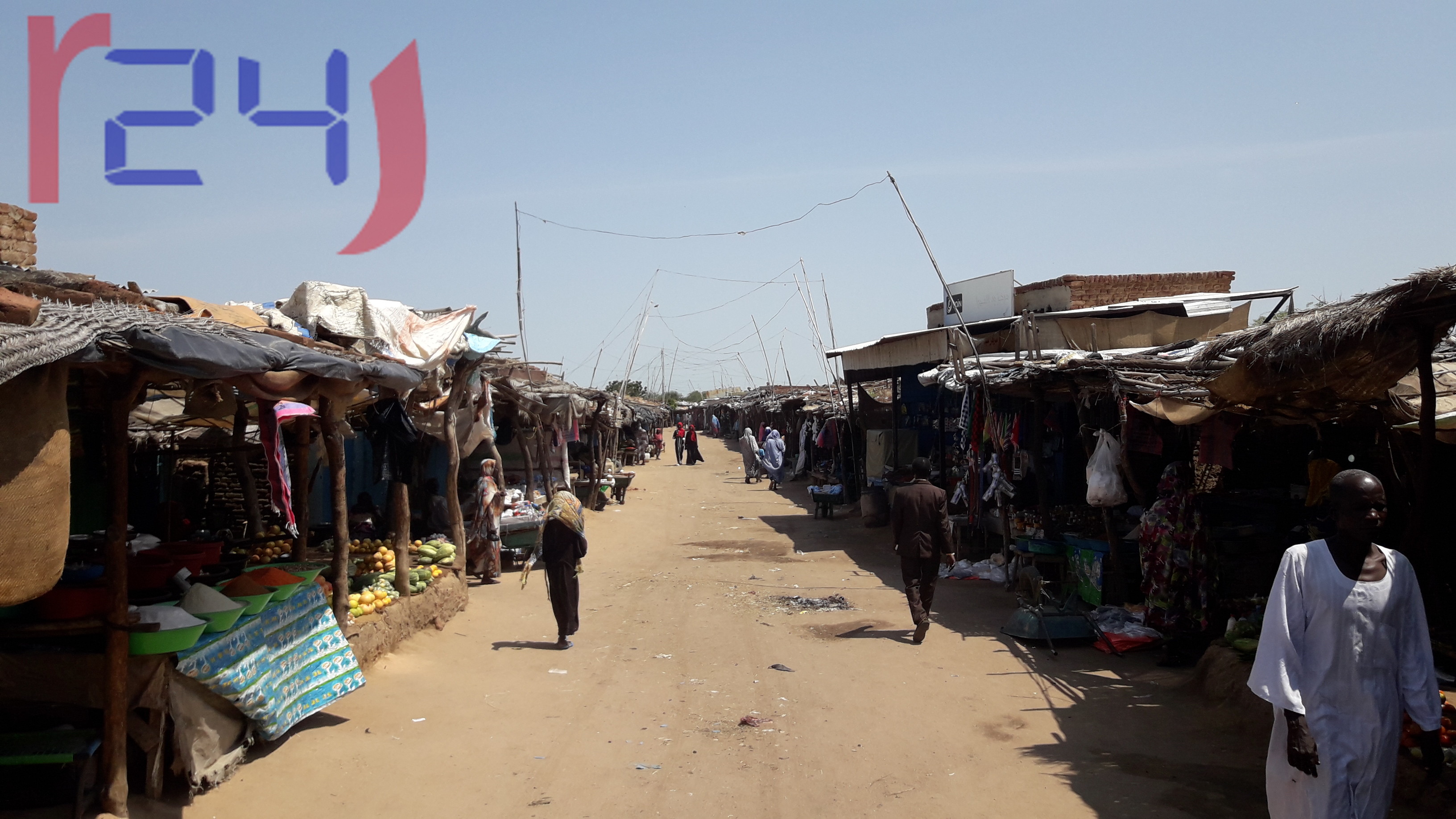Zamzam camp for the displaced people is one of the largest camps for victims of the war that Darfur has witnessed since 2003, housing more than 450 thousand people displaced from more than 200 villages throughout the five states of Darfur.
Despite the calm inside the Zamzam IDP camp 15 km southwest of El Fasher, the capital of North Darfur state, the delegation of journalists who arrived early in the camp was warmly received by the camp residents.
The camp residents suffer from a lack of health services, education, and safe drinking water, in addition to the insecurity and its repercussions of continuous killing and rape.
The camp’s school teacher, Ibrahim Nafeh, 29 years old, says that the camp suffers from a deterioration in the educational services that the displaced children receive.
He explained that more than 6 thousand of the camp’s children are out of school, while there are 28 primary schools and two secondary schools in the camp, most of which lack textbooks and seating.
In addition to the density of students in the classrooms, where the number of students in one semester is estimated to be more than 150 students.
On the 20th of last August, the displaced people of Zamzam camp staged an open sit-in, closing the “Al-Fasher-Nyala” road that passes through the center of the IDP camp.
A member of the sit-in committee, Suleiman Ibrahim Eid, told reporters who visited the camp in a program accompanying a series of training courses within the project to reject hate speech and promote a culture of peace in Darfur, which is implemented by the “People for People” organization, that the media played a major role in reflecting the suffering of the camp’s displaced people during the August sit-in.
But he made it clear that they lifted the sit-in based on understandings they had reached with the government of the Darfur region and the government of North Darfur, but that the government had not implemented any of its commitments, while there was only a week left of the deadline agreed upon by the two parties.
While the displaced are preparing again ton resume their protest immediately after the deadline expires, Ibrahim Eid added: The government is now repudiating its promises, and if it does not fulfill its obligations, the displaced will return to the sit-in square.
A member of the sit-in media committee, “Mohamed Khamis Douda,” said that the state government committed itself to sending twenty military vehicles to base in the areas of “Glab, Si Sawa, Zaqlouna, Katoul, Wadi Mara, Umm Qaigo,” but it reneged on its commitments, and last week sent only two vehicles to two areas .
As for the legal aspect and the arrest of the accused, Dowda says that the steps are still slow, and that the government has not accomplished any of them, and it has committed to establishing a prosecution in the camp to start investigating and investigating cases of rape and kidnapping and arresting the perpetrators.
IDPs demands
The most prominent demands of the displaced in the August sit-in, which lasted for 17 days, were to conduct an investigation into the crimes of murder and rape, deploy forces to protect civilians, secure the agricultural season, provide health and water services, declare a state of famine emergency in the camp, and facilitate the entry of international organizations to it.
government promises
In the round of negotiations that took place between the IDPs, on the one hand, the government of the Darfur region, the government of North Darfur, and tribal leaders in some Darfur states, the governor of North Darfur, Nimr Muhammad Abdul Rahman, committed himself to solving the security problems, including the protection of the agricultural season and other issues.
Meanwhile, the governor of the Darfur region, Minni Arko Minawi, announced his donation to the camp with two ambulances, in addition to completing three schools, in addition to an amount of fifteen million for the maintenance and rehabilitation of health and education institutions, and an amount of five million to support women and youth projects.

